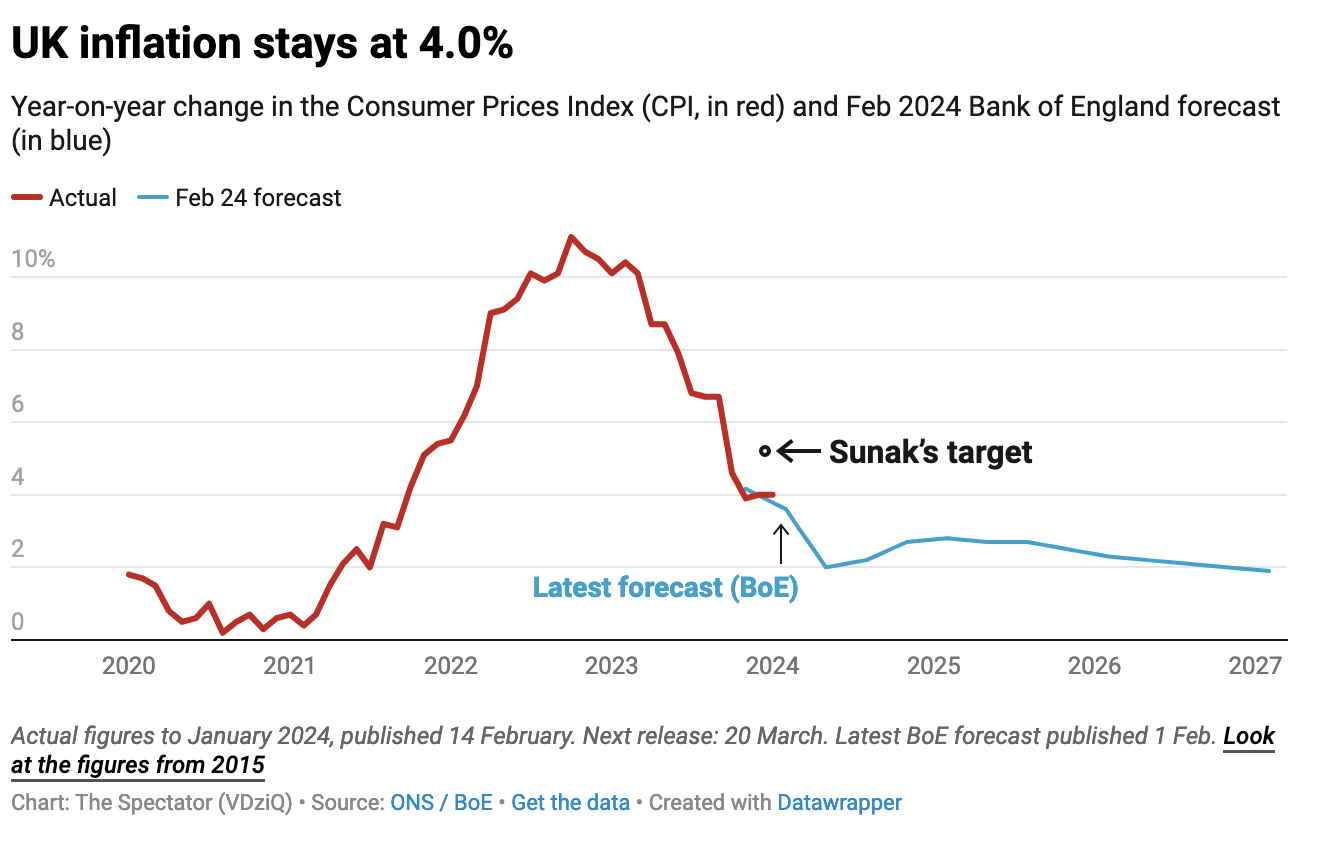The government had been facing two economic challenges this week, ahead of the by-elections in Kingswood and Wellingborough: the publication of the latest inflation figures and the economic growth figures for the last quarter of 2023. It has just about survived the first challenge.

This morning’s update from the Office for National Statistics shows the inflation rate sticking at 4 per cent on the year in January, unchanged from December.
Already a subscriber? Log in
Subscribe for just $2 a week
Try a month of The Spectator Australia absolutely free and without commitment. Not only that but – if you choose to continue – you’ll pay just $2 a week for your first year.
- Unlimited access to spectator.com.au and app
- The weekly edition on the Spectator Australia app
- Spectator podcasts and newsletters
- Full access to spectator.co.uk
Or





















Comments
Don't miss out
Join the conversation with other Spectator Australia readers. Subscribe to leave a comment.
SUBSCRIBEAlready a subscriber? Log in